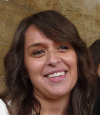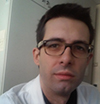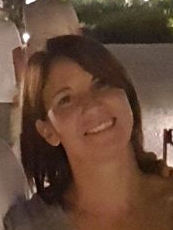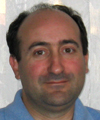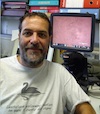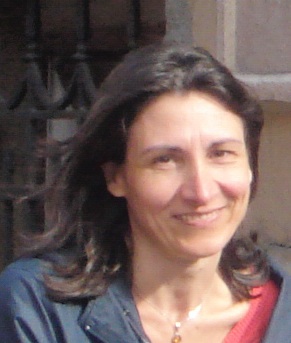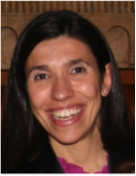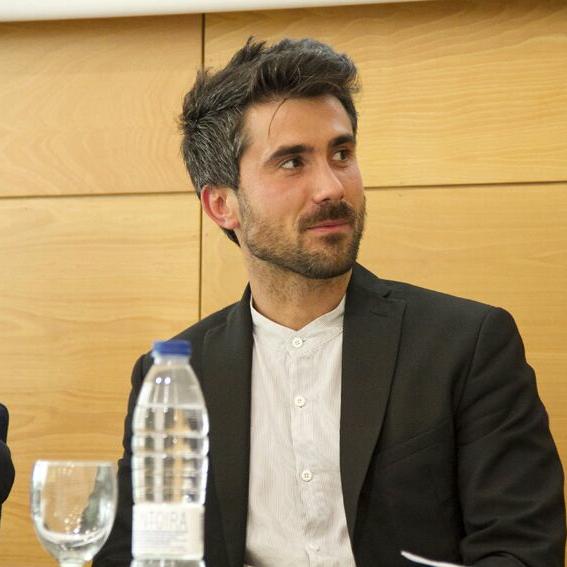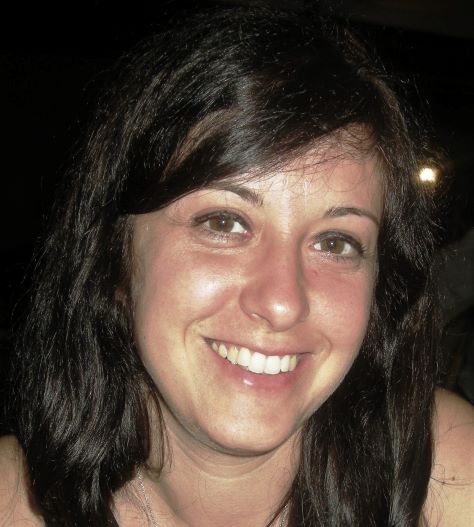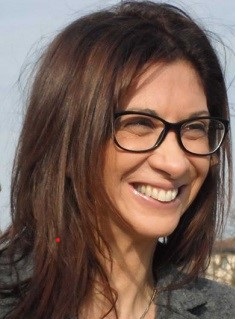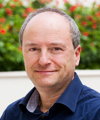Studying at the University of Verona
Here you can find information on the organisational aspects of the Programme, lecture timetables, learning activities and useful contact details for your time at the University, from enrolment to graduation.
Academic calendar
The academic calendar shows the deadlines and scheduled events that are relevant to students, teaching and technical-administrative staff of the University. Public holidays and University closures are also indicated. The academic year normally begins on 1 October each year and ends on 30 September of the following year.
Course calendar
The Academic Calendar sets out the degree programme lecture and exam timetables, as well as the relevant university closure dates..
| Period | From | To |
|---|---|---|
| I semestre | Oct 1, 2015 | Jan 29, 2016 |
| II semestre | Mar 1, 2016 | Jun 10, 2016 |
| Session | From | To |
|---|---|---|
| Sessione straordinaria Appelli d'esame | Feb 1, 2016 | Feb 29, 2016 |
| Sessione estiva Appelli d'esame | Jun 13, 2016 | Jul 29, 2016 |
| Sessione autunnale Appelli d'esame | Sep 1, 2016 | Sep 30, 2016 |
| Session | From | To |
|---|---|---|
| Sess. autun. App. di Laurea L2 | Nov 24, 2015 | Nov 24, 2015 |
| Sess.invern. 2016 App. di Laurea L2 | Mar 9, 2016 | Mar 9, 2016 |
| Sess. estiva App. di Laurea L2 | Jul 22, 2016 | Jul 22, 2016 |
| Sess. autun 2016 App. di Laurea L2 | Nov 22, 2016 | Nov 22, 2016 |
| Sess. invern. 2017 App. di Laurea L2 | Mar 10, 2017 | Mar 10, 2017 |
| Period | From | To |
|---|---|---|
| Festività dell'Immacolata Concezione | Dec 8, 2015 | Dec 8, 2015 |
| Vacanze di Natale | Dec 23, 2015 | Jan 6, 2016 |
| Vancanze di Pasqua | Mar 24, 2016 | Mar 29, 2016 |
| Anniversario della Liberazione | Apr 25, 2016 | Apr 25, 2016 |
| Festa del S. Patrono S. Zeno | May 21, 2016 | May 21, 2016 |
| Festa della Repubblica | Jun 2, 2016 | Jun 2, 2016 |
| Vacanze estive | Aug 8, 2016 | Aug 15, 2016 |
Exam calendar
Exam dates and rounds are managed by the relevant Science and Engineering Teaching and Student Services Unit.
To view all the exam sessions available, please use the Exam dashboard on ESSE3.
If you forgot your login details or have problems logging in, please contact the relevant IT HelpDesk, or check the login details recovery web page.
Should you have any doubts or questions, please check the Enrollment FAQs
Academic staff
Ugolini Simone
 simone.ugolini@univr.it
simone.ugolini@univr.it
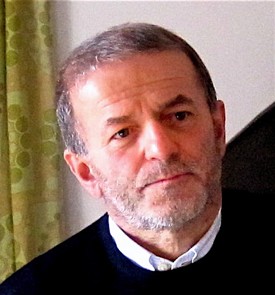
Vallini Giovanni
 giovanni.vallini@univr.it
giovanni.vallini@univr.it
 045 802 7098; studio dottorandi: 045 802 7095
045 802 7098; studio dottorandi: 045 802 7095
Study Plan
The Study Plan includes all modules, teaching and learning activities that each student will need to undertake during their time at the University.
Please select your Study Plan based on your enrollment year.
1° Year
| Modules | Credits | TAF | SSD |
|---|
2° Year activated in the A.Y. 2016/2017
| Modules | Credits | TAF | SSD |
|---|
3° Year activated in the A.Y. 2017/2018
| Modules | Credits | TAF | SSD |
|---|
| Modules | Credits | TAF | SSD |
|---|
| Modules | Credits | TAF | SSD |
|---|
| Modules | Credits | TAF | SSD |
|---|
Legend | Type of training activity (TTA)
TAF (Type of Educational Activity) All courses and activities are classified into different types of educational activities, indicated by a letter.
Plant physiology - Photosynthesis and stress. (2017/2018)
Teaching code
4S003261
Credits
6
Language
Italian
Scientific Disciplinary Sector (SSD)
BIO/04 - PLANT PHYSIOLOGY
The teaching is organized as follows:
teoria
laboratorio
Learning outcomes
The course is intended to offer an integrated view of some fundamental aspects of the primary and secondary metabolism of plants and their integration and mutual influence. The course aims to define some of the main metabolic pathways and to provide the basis for metabolic analysis using biochemical, genetic and biophysical methods. Theoretical basics will be supplemented by the illustration of biotechnological applications of the engineering of the metabolic pathways involved. Particularly important will be the inhibition of photosynthesis by oxygen and its consequences for the productivity of algae and crops. Finally, the biogeochemical carbon cycle will be discussed.
Prerequisites:
courses of general biochemistry, genetics.
Program
Program of the course
1) Distinctive characteristics of bioenergetics of animals and plants. Structure and distribution of genes for mobility and coordination functions (animals) with respect to (biosynthesis of secondary metabiies (plants). Consequences of mobility towards stationarity for organisms in relation to the intensity of the energy source and environmental conditions.
2) Chlorophyll biosynthesis.
3) Carotenoid biosynthesis.
4) Plant cell structure with particular reference to mitochondria and chloroplasts. Structure of the tilacoidal membranes biogenesis of respiratory and photosynthetic systems.
5): Light as a source of energy and information in plants: primary and secondary metabolism control mechanisms
6): Electron transport and ATP synthesis in bacteria, green algae and top plants. Cyclic and linear transport. Alternative routes of electronic transport.
7) Electronic Transport Control. Controlling and adjusting the absorption of light between the two photojours. Thermal dissipation and photoprotection.
8) Carbon Fixation: Calvin Cycle, Hatch et Slack Cycle, CAM metabolism. Perspectives of modification of carbon myrtenia in cultivated plants.
9) Biosynthesis and mobilization of starch in chloroplast and leukoplasts. Metabolic reactions between chloroplast and cytoplasm. Sugar transport to the plant.
10) Hydrogen metabolism as a source of energy. Hydrogenases in green algae, cyanobacteria and thermophilic bacteria. Hydrogen production bioenergetics.
11) Nitrogen Metabolism. Symbiotic and bacterial fixation of atmospheric nitrogen. Organizing the nitrogen. Essential amino acid biosynthesis.
12): Sulfur Metabolism. Methionine and cysteine biosynthesis. Glutathione, phytochelatine and detoxification of xenobiotic substances. Herbicides and pollutants.
13) Inhibition photosynthesis by oxygen and consequences for the productivity of algae and cultivated plants
14) Secondary mycalgia. The plant as a programmable biosynthetic machine. A): terpeneoids. Biotechnology of caroteneids for the production of dyes, vitamins and antioxidants.
15): Biosynthesis and lipid degradation. Role in adapting plants to temperature. Lipids as substrate for signal translation and biosynthesis of jasmonic acid.
Bibliography : Buchanan, Gruissem & Jones: Biochemistry and Molecular Biology of Plants. Taiz & Zeiger: Plant Physiology.
Bibliografia :
Buchanan, Gruissem & Jones : Biochemistry and Molecular Biology of Plants.
Taiz & Zeiger : Plant Physiology.
Bibliography
| Activity | Author | Title | Publishing house | Year | ISBN | Notes |
|---|---|---|---|---|---|---|
| teoria | B.B. Buchanan, W. Gruissem & R.L. Jones | Biochemistry & Molecular Biology of Plants | American Society of Plant Physiology | 2000 | 0-943088 | |
| teoria | a cura di Buchanan B.B., Gruissem W., Jones R.L., Zanichelli Editore. | “Biochimica e Biologia Molecolare delle Piante” | ||||
| laboratorio | Taiz L. Zeiger E. | Elementi di Fisiologia Vegetale | Piccin | 2013 |
Examination Methods
The examination will be organized in two parts:
a) Written with a series of multiple choice questions, assisted by a question of describing a metabolic pathway in details including formulas, enzymes that catalyze reactions, and what are the kinetically limiting steps.
b) Oral in which the topics discussed in the lessons will be discussed.
Type D and Type F activities
Modules not yet included
Career prospects
Module/Programme news
News for students
There you will find information, resources and services useful during your time at the University (Student’s exam record, your study plan on ESSE3, Distance Learning courses, university email account, office forms, administrative procedures, etc.). You can log into MyUnivr with your GIA login details: only in this way will you be able to receive notification of all the notices from your teachers and your secretariat via email and soon also via the Univr app.
Graduation
List of theses and work experience proposals
| theses proposals | Research area |
|---|---|
| Studio delle proprietà di luminescenza di lantanidi in matrici proteiche | Synthetic Chemistry and Materials: Materials synthesis, structure-properties relations, functional and advanced materials, molecular architecture, organic chemistry - Colloid chemistry |
| Multifunctional organic-inorganic hybrid nanomaterials for applications in Biotechnology and Green Chemistry | Synthetic Chemistry and Materials: Materials synthesis, structure-properties relations, functional and advanced materials, molecular architecture, organic chemistry - New materials: oxides, alloys, composite, organic-inorganic hybrid, nanoparticles |
| Dinamiche della metilazione del DNA e loro contributo durante il processo di maturazione della bacca di vite. | Various topics |
| Risposte trascrittomiche a sollecitazioni ambientali in vite | Various topics |
| Studio delle basi genomico-funzionali del processo di embriogenesi somatica in vite | Various topics |
Attendance
As stated in the Teaching Regulations for the A.Y. 2022/2023, attendance is not mandatory. However, professors may require students to attend lectures for a minimum of hours in order to be able to take the module exam, in which case the methods that will be used to check attendance will be explained at the beginning of the module.

